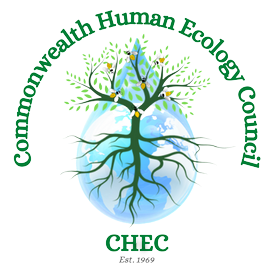Keith Thompson
Former CHEC Governing Board Member
Keith Thompson 1936-2023
Keith Thompson who was a member of the CHEC Governing Board in the nineteen-nineties, died peacefully in Hamilton, New Zealand on 02 December 2023, aged 85. Keith was a scientist and environmentalist who did much to improve the understanding of the importance of wetlands both in New Zealand and in Uganda, the Congo, Czech Republic, Australia and the Antarctic. Born in north-east England, he completed his Honours thesis at the University of Burham under the supervision of David Bellamy, who later became one of the most well-known UK environmentalists and nature broadcasters. Moving to the University of Waikato, New Zealand in 1975, he lived a full and adventurous life as a botanist and ecology lecturer and throughout his career was a passionate advocate for the management and protection of wetlands. to the country's ecology, teaching and inspiring more than one generation of New Zealanders.
In the Waikato, he was a key player in the advocacy and management of wetland restoration projects, including Lake Rotokawau and Kimihia, Torehape peat block and the hangamarino swamp. Becoming known as “The Bogman”, he fought for wetland protection and recognition of the role of peatland in carbon uptake and thus climate change mitigation. He shared his enthusiasm with adults and children, being a driving force in the Junior Naturalists Club. On Friday nights he lectured school age children, from age 10 years upwards, on ecology and lead field trips and camps into the bush. One colleague from this time was impressed at how quiet and incidental Keith's teaching style was, almost as though it was not happening at all.
Keith was one of a group of Waikato activists that included Margaret Evans (a Human Ecology Foundation Trustee) and Norman Stannard (now an Honorary Patron of CHEC) which greatly helped CHEC’s 1995 pre-CHOGM workshop in Auckland and which has sustained a vibrant CHEC community and links with Waikato University in Hamilton. Keith had enormous respect for Zena Daysh. After she died he wrote:
“A single encounter with Zena and I was duly ‘organised’ – no was never an option! Seriously though, meeting with Zena was one my life-changing experiences. Thereafter, Human Ecology played a major role in my teaching and my research. Most of us are instantly replaceable when we pass on, but Zena was special: her legacy is far more than most of us can ever hope to achieve in our lifetimes. Her infectious enthusiasm for social justice and her dedication to improving the lives of people was an example to us all. She was a mine of ideas, an indefatigable campaigner and an irresistible negotiator. I am privileged to have known Zena and I will miss her.”
With kind thanks to Ian Douglas
May 2024

